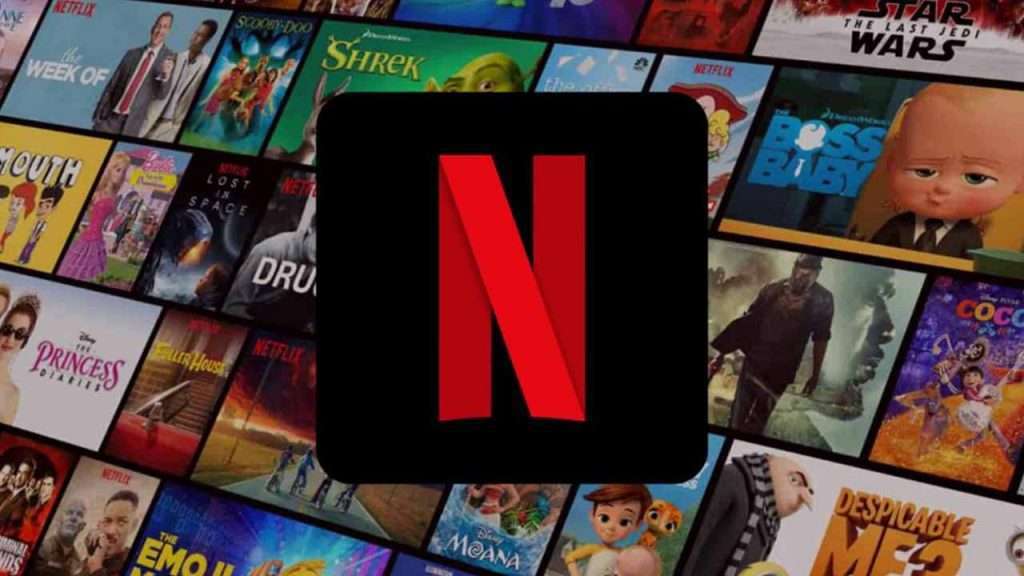Netflix is making sharing accounts a whole lot harder, as the big password-sharing crackdown we all feared has begun. That’s right; unless you’re sharing a password with someone in your household, you won’t be able to share your Netflix account with anyone who isn’t in the same location.
As of now, Netflix users in New Zealand, Canada, Portugal and Spain will need to add an extra member sub-account in order to share their access with friends and family. However, it comes with an extra fee.
Account holders with a Standard or Premium plan can add up to two people living outside their home as extra members, which will cost them NZD$7.99 per person. Otherwise, subscribers will no longer enjoy the ease of sharing their passwords and accounts with loved ones outside their households. Bummer.
More countries will soon be affected by the streaming company’s harsh password-sharing update. As for those now affected by the change, here’s what you need to know.
Why is Netflix cracking down on password sharing?
Despite Netflix famously saying, “love is sharing a password” on Twitter, the streaming giant has now changed its mind. In fact, Netflix CEO Reed Hastings said, “we love people sharing Netflix” back in 2016.
In an update, the company now states its concern about people sharing accounts: “Today, over 100 million households are sharing accounts — impacting our ability to invest in great new TV and films.” Netflix’s reasoning is to give subscribers greater control over who can access their accounts, but it’s also likely due to its recent loss in subscribers.
In the first quarter of 2022, Netflix reported a loss of 200,000 subscribers – a first in over a decade. While still reaching 222 million “paying households,” there are an additional 100 million households using the streaming service via password sharing. That’s a lot of revenue the company could gain, and eliminating account sharing would see huge gains.
Netflix also faces a lot more competition than it once did. With streaming giants such as Disney+, Apple TV+, HBO Max, Paramount+ and more duking it out for subscriber dominance, it’s clear Netflix is doing what it can to stay on top as the world’s largest streaming service. But it comes at the cost of many losing free access with just one account.
How does Netflix password sharing work?
Netflix states that an account is “meant to be shared in one household,” meaning only people living with the account owner will be able to access the streaming service with one subscription. People who aren’t in the same household will need to buy their own subscriptions or be added as extra members.
The streaming giant introduced different tiers of subscription plans, including the new ad-based plan, with Standard and Premium being the only packages allowing for extra members.

These extra member accounts still come at a cost (NZD$7.99 a month per person in New Zealand, CAD$7.99 in Canada, €3.99 in Portugal and €5.99 in Spain). As Netflix specifies, the sub-accounts will need to be approved and paid for by the account owner, and they need to be in the same country where the account owner created the account. These members can transfer a profile from an existing account, “including recommendations, viewing history, My List, saved games, settings, and more.”
In New Zealand, Netflix says you’ll need to set your primary location by February 22. This can be done by heading to Settings and selecting Get Help > Manage primary location. If it isn’t set, Netflix will automatically set one based on your location.
If you’re travelling abroad, you can still access your Netflix account on personal devices or even on a new TV. It isn’t certain how long this will last. However, thanks to the Wayback Machine, the streaming giant’s now-updated Help Center page stated that if you’re away for an extended period of time (likely more than 31 days), your device may be blocked, and you will need to request a temporary access code.
Netflix uses a combination of your primary location’s IP address, device IDs and the account activity from devices signed into the Netflix account to make sure no one else is using your account. It doesn’t use any GPS data; Netflix uses the IP address from the Netflix device or app to assume its general location.
Can I bypass Netflix’s password-sharing crackdown?
Previously, Netflix stated on its Help Center page that users can “request a temporary code to give you access to Netflix for 7 consecutive days.” Giving users of an account a temporary code may have been an obvious loophole for people to access Netflix outside a primary location, but it appears Netflix is changing certain details.
There is no clear method of getting past Netflix’s password-sharing crackdown. With the streaming giant using your primary location’s IP address to recognise an account holder’s primary address, it makes it difficult for the best VPNs for Netflix, like ExpressVPN, to bypass the service. VPNs use different IP addresses in different countries, meaning Netflix may even block an account that’s not using the primary location’s IP address.
While there is a way to connect to your household’s Wi-Fi remotely outside your home by using your Wi-Fi router’s IP address, it can only really be used to control your router’s settings – not to access your home internet. However, using your primary location’s IP address may be the key to cracking the password-sharing code. That said, this has yet to be tested.
Netflix’s crackdown on password sharing is here, and only time will tell how it will impact the streaming giant’s subscriber count. In the meantime, check out what to do if Netflix isn’t working with your VPN.

